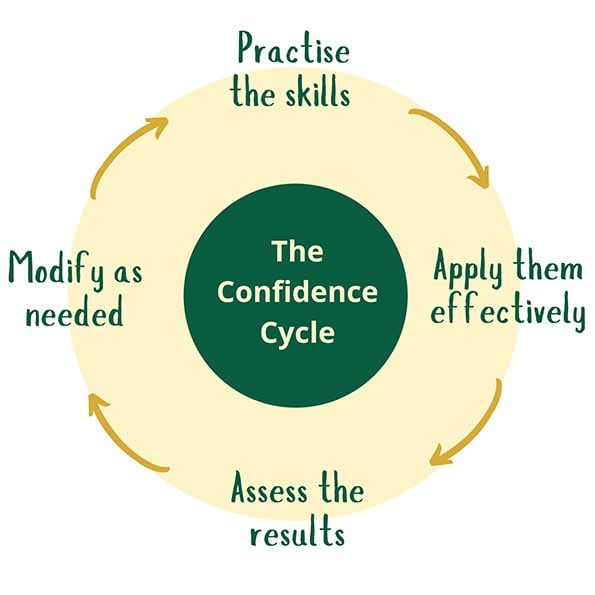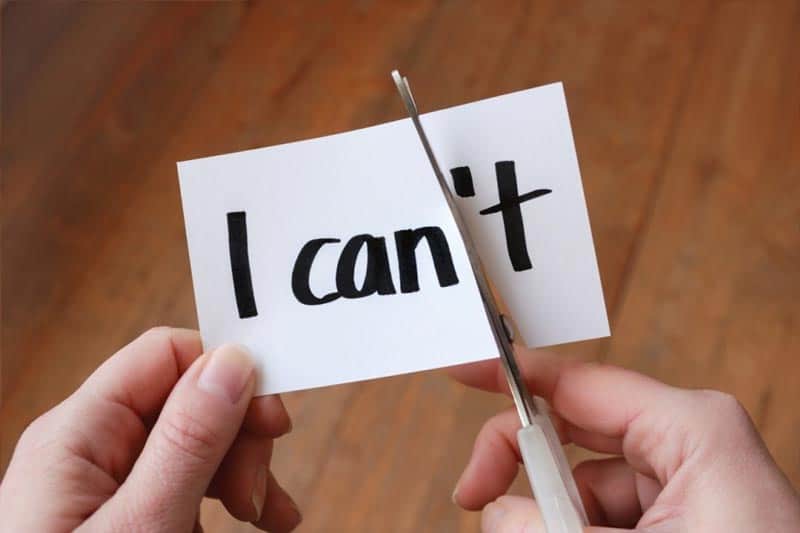Confidence, often considered the secret ingredient to success, plays a crucial role in career progression and overall job satisfaction. Workplace habits continue to change with every era, and therefore the definition of a ‘confident professional’ has also changed, especially in the past few years with remote and hybrid work schedules. Recent research indicates that only 4% of people feel confident at work, a staggeringly low amount considering the demand. Confidence is a feeling, but it can be maneuvered in a manner that is helpful for work. Working on it can increase communication skills, influencing abilities, and pave the way for bigger opportunities.

Confidence is a Habit, Not a Trait
Contrary to popular belief, confidence isn’t something you either have or don’t have. It’s not an elusive trait reserved for a select few. Rather, it should be seen as a habit developed over time through small, positive everyday actions. Think of it as a muscle that needs regular exercise to grow stronger. Begin by setting achievable goals for yourself. These goals can be as simple as participating in meetings, speaking up during discussions, or volunteering for tasks outside your comfort zone. Each small accomplishment will contribute to a growing sense of confidence. Celebrate these wins, no matter how minor they seem, and use them as stepping stones to tackle more significant challenges.
Another crucial aspect of building confidence is self-talk. Pay attention to the language you use when speaking to yourself. Replace self-doubt and negative thoughts with positive affirmations. Remind yourself of your strengths and past successes, reinforcing the belief that you are capable. Moreover, surround yourself with supportive colleagues and mentors who can provide constructive feedback and encouragement. Learning from others who have already walked the path to confidence can be incredibly empowering.

Define Confidence for Yourself
Confidence in the workplace isn’t a one-size-fits-all concept. You do not need to emulate someone else’s style, follow some motivational individuals, or read preachy books. Simply find your own authentic approach. Understanding your personality traits is crucial in this process. Professional confidence does not just stem from being firm or unwavering; it also involves being empathetic. Confidence should be balanced with approachability and the ability to listen actively. Recognize that being assertive doesn’t mean being aggressive. Instead, it means confidently expressing your ideas while respecting others’ perspectives.
Take time to assess your strengths and weaknesses. Are you naturally outgoing or introverted? Do you excel in analytical thinking or creative problem-solving? Understanding your unique qualities can help you tailor your confidence-building efforts to align with your personality. For introverts, building confidence might involve setting aside time for preparation and reflection before meetings or presentations. Several introverts have become established business leaders and changemakers around the world by building on confidence. On the other hand, extroverts may focus on enhancing their listening skills and giving others a chance to speak. Both approaches can lead to increased confidence in different workplace scenarios.
Remember that it’s okay to show vulnerability at times. Acknowledging your limitations and seeking help or feedback when needed demonstrates self-awareness and confidence in your ability to grow and learn.

Regulating Nervous Jitters
It’s natural to feel nervous before a big presentation or an important meeting. It is the physiological ‘fight or flight response’ that the body creates before a big performance. Feeling nervous is part of developing your confidence.When you are at your lowest and feel the jitters, you can come out stronger by bracing yourself and understand the origin of these emotions. Managing these nerves is a crucial aspect of building and projecting confidence at the workplace.

To calm pre-performance jitters, consider the following strategies:
- Preparation: The more you prepare, the more confident you’ll feel. Research thoroughly, create a structured outline, and rehearse your presentation multiple times. Knowing your material inside and out will boost your confidence.
- Visualization: Imagine yourself succeeding in the task ahead. Visualizing a positive outcome can help reduce anxiety and build confidence in your abilities.
- Deep Breathing: Practice deep breathing exercises to calm your nerves. Deep breaths can slow your heart rate and help you stay focused and composed.
- Positive Self-Talk: Instead of dwelling on what could go wrong, focus on what could go right. Remind yourself of your capabilities and past successes.
- Physical Health: Regular exercise and a healthy diet can contribute to overall well-being and help reduce stress and anxiety.
- Seek Support: Talk to a trusted colleague, friend, or mentor about your anxiety. Sometimes, expressing your concerns to someone else can alleviate stress. Many companies offer professional counseling sessions for burnt out employees to manage stress.
- Mindfulness and Meditation: Incorporate mindfulness techniques and meditation into your daily routine to enhance your ability to stay present and calm under pressure.
Building confidence at the workplace is not a daunting task reserved for a select few. It’s a habit that can be cultivated through daily actions, tailored to your unique personality traits, and manageable even when faced with big challenges. Remember that confidence is not about pretending to be someone you’re not; it’s about believing in your abilities and trying your best. With dedication and practice, you can develop the confidence needed to thrive in your career and achieve your professional goals.



